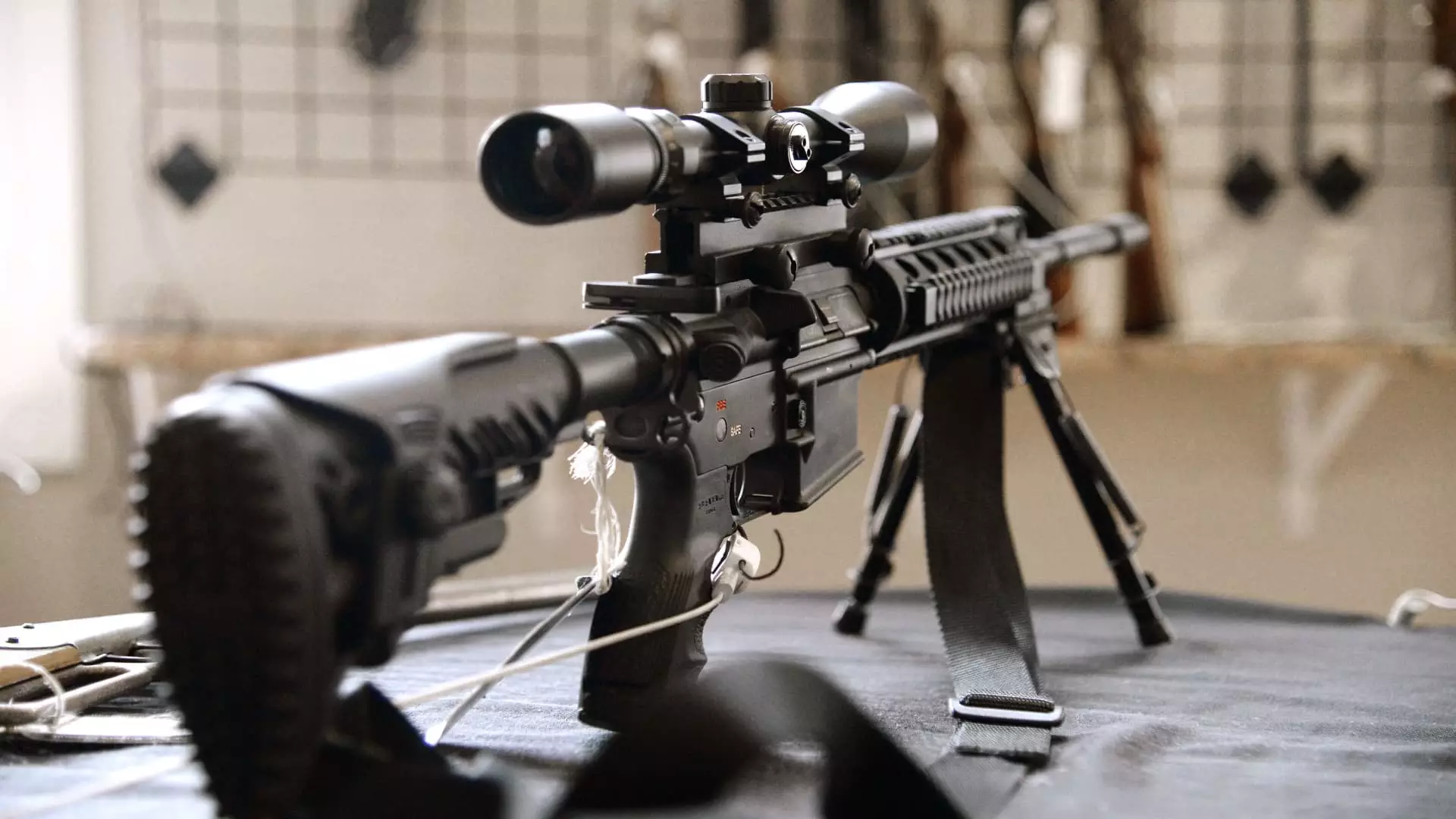In a politically charged environment that desperately demands decisive action against gun violence, Rhode Island’s recent legislative decision to ban the sale and manufacture of semiautomatic rifles—often labeled “assault weapons”—comes off not as a robust initiative but rather as a tepid response. With the Democratic-controlled state House backing this limited ban, it feels more like a half-baked solution than a genuine stride towards robust gun control. While the intention is noble, the execution remains alarmingly inadequate, leaving many to ponder whether this legislation is merely a token effort to quiet mounting public pressure.
This move, which awaits the signature of Democratic Governor Dan McKee—a supporter of such bans—follows more than a decade of advocacy for stricter gun control measures by passionate citizens and groups within Rhode Island. Even in a state characterized by Democratic dominance, the debates have been riddled with hesitancy and reluctance to tackle the complexity of the issue head-on, leading to what feels like a dilution of the very essence of an assault weapons ban. By prohibiting only the sale and manufacture rather than possession, the legislation creates a loophole that may leave the vulnerable public at risk while failing to confront the very realities of gun violence.
Incremental Change or Deliberate Weakness?
Representative Rebecca Kislak aptly coined the upcoming law as an “incremental move,” yet one must question how effective incrementalism has been thus far. If the objective of enacting change is to ensure that the lives of Rhode Islanders are safeguarded against an alarming spike in mass shootings, why stop short? Critics are quick to highlight that this approach inadequately addresses the core issues behind gun violence. The law’s limitations mean that while the state disallows the sale of these weapons within its borders, individuals can easily circumvent the ban by purchasing them in less regulated neighboring states like New Hampshire.
The irony is palpable. Law-abiding citizens are left in a precarious space, as opposition from Republican lawmakers and even voices from the gun control community suggest that the proposed legislation is weak and ineffective. Conservative legislators argue that this ban burdens responsible citizens rather than targeting criminal behavior. Prominent figures, such as activist David Hogg, have denounced the proposed ban as perhaps the weakest of its kind in the nation, pushing for more comprehensive measures that go beyond superficial changes. In essence, if Rhode Island is to take a stand, it must do so with a bold conviction, not through simplistic, half-measures.
Legal Ambiguities and the Second Amendment Dilemma
A significant point of contention arises when analyzing the legal implications of this proposed ban. With the specter of the Supreme Court looming large, the potential for legal challenges cannot be understated. Gun rights advocates, emboldened by a conservative-majority court created through a series of judicial appointments, are poised to resurrect debates on the Second Amendment. One cannot help but wonder whether Rhode Island lawmakers are crafting this legislation with a dual lens—one focused on public safety and the other wary of the legal backlash that may ensue.
Concerns voiced by lawmakers, such as House Minority Leader Michael Chippendale, warn that the ban may well meet its demise at the hands of a conservative judiciary intent on protecting gun rights against even the most minimal restrictions. Such apprehensions highlight a critical oversight in the design of this legislation. If the objective is to genuinely curtail the proliferation of high-powered firearms, Rhode Island must brace itself against an anticipated constitutional melee and reinforce its legal foundation from the outset.
A Call for Real Action
In the end, Rhode Island’s legislative effort to enact an assault weapons ban showcases the complexities and contradictions inherent in current gun control debates. While the bill represents a step, it remains fraught with limitations that may undermine its efficacy. Anything short of a comprehensive ban—including possession—fails to address the intricate relationship between firearms and violence, leading us to a singular, discomforting conclusion: Rhode Island is charting a course towards merely looking as if it is taking action rather than genuinely safeguarding its residents from the scourge of gun violence.
As the state stands at a crossroads, it is crucial for lawmakers to re-evaluate their approach. The urgency of the issue demands not just any legislation, but decisive, unwavering action that meets the moment. Only through comprehensive measures can the state embody its commitment to protecting the lives of its citizens, preventing the future tragedies that seem all too likely amidst half-hearted attempts and lukewarm responses.


Leave a Reply